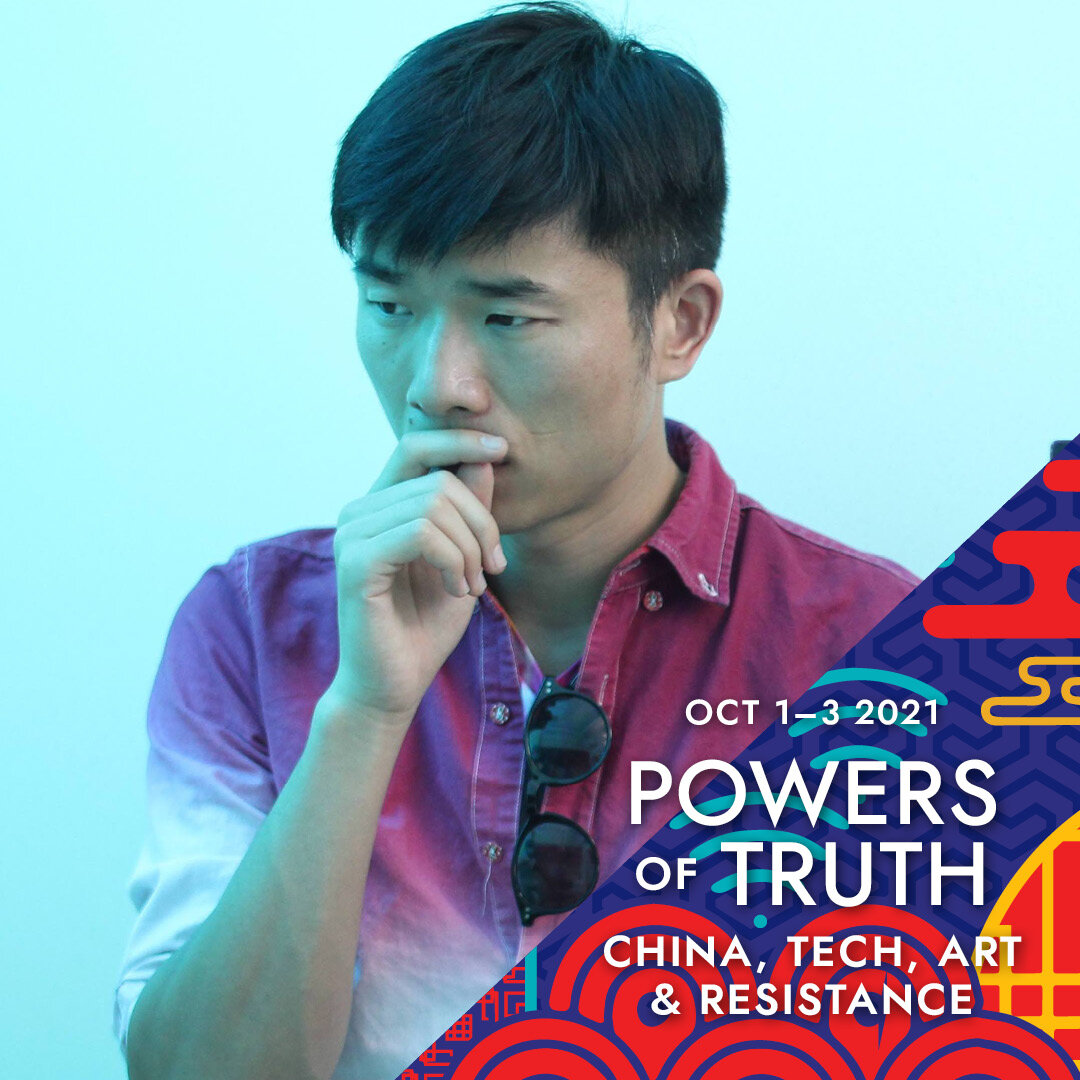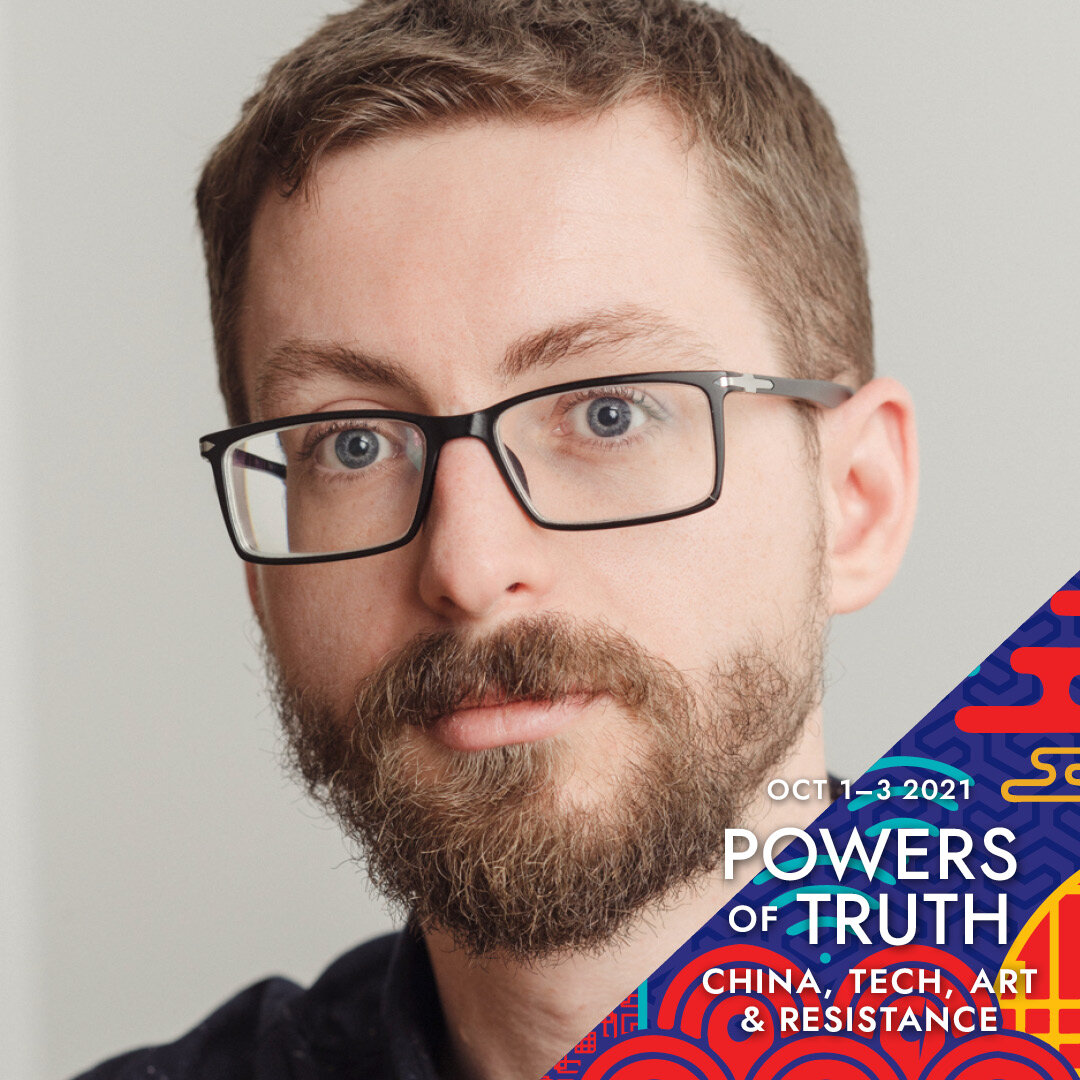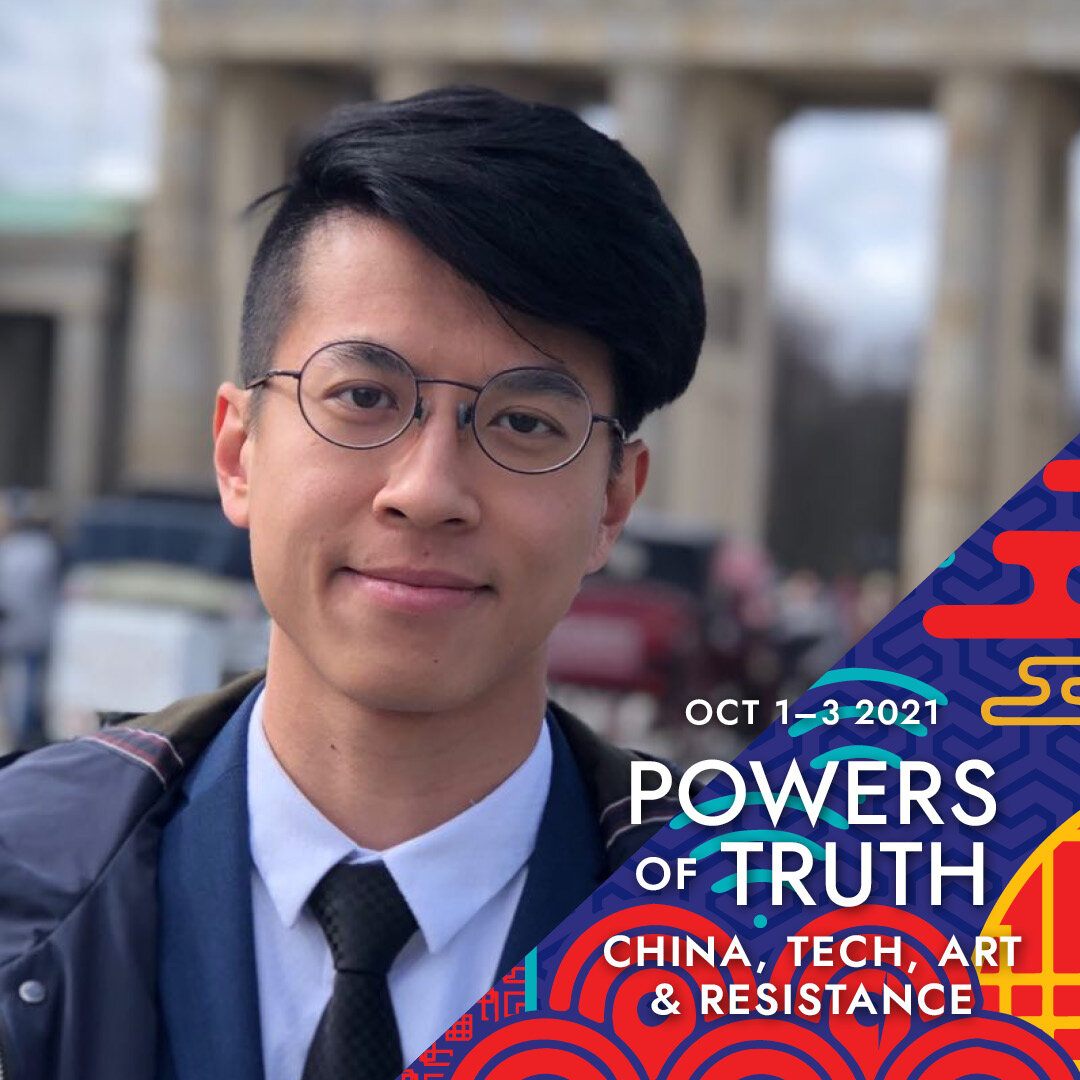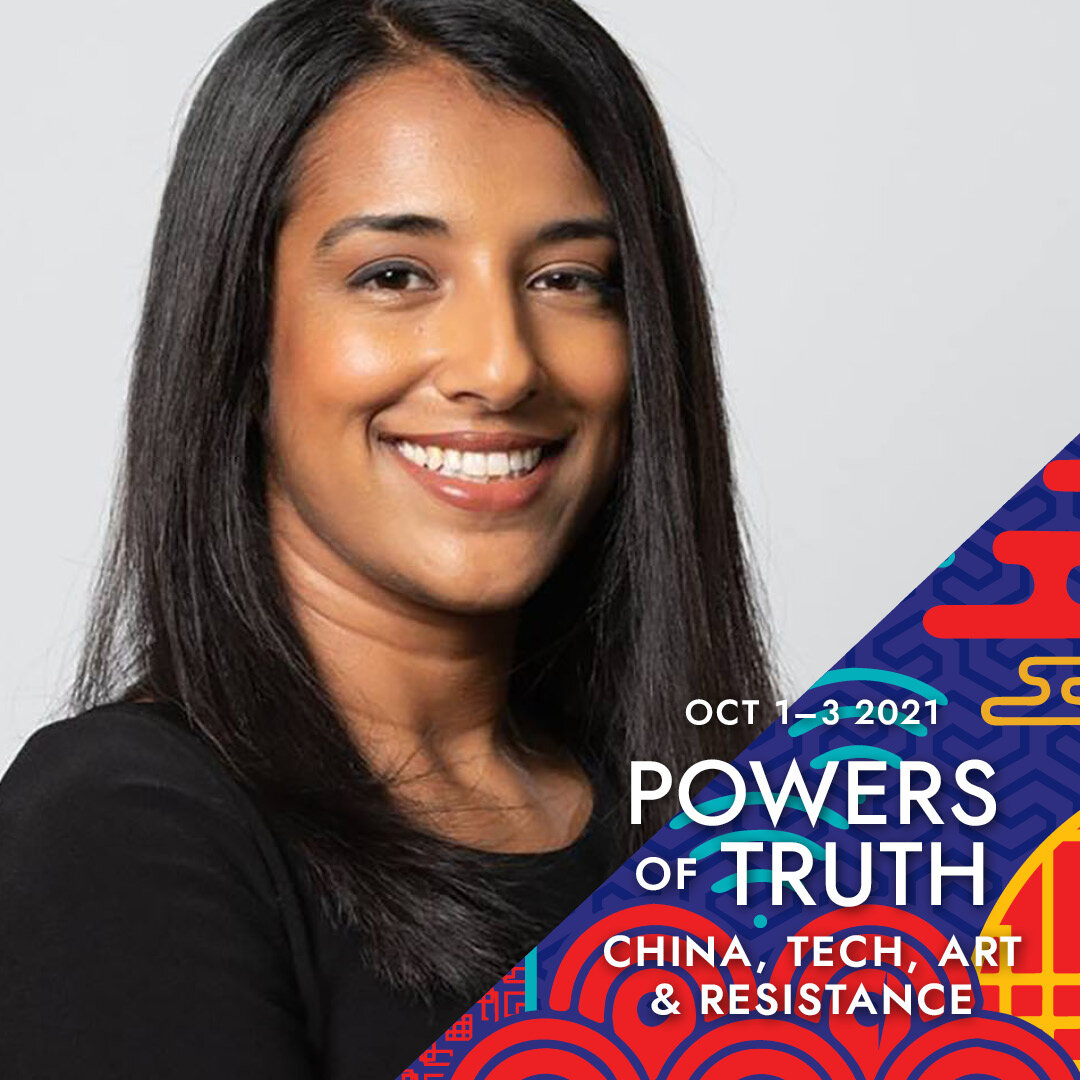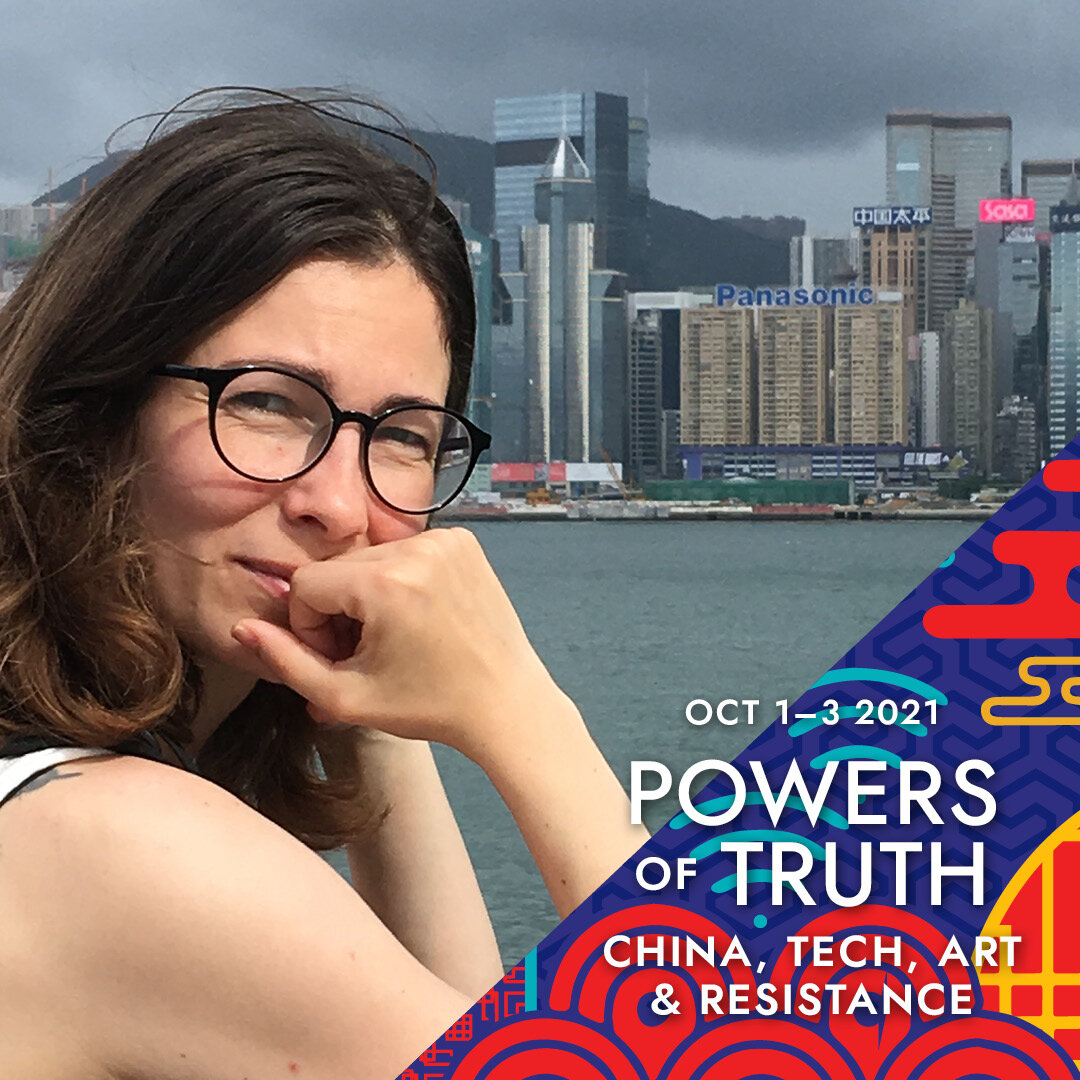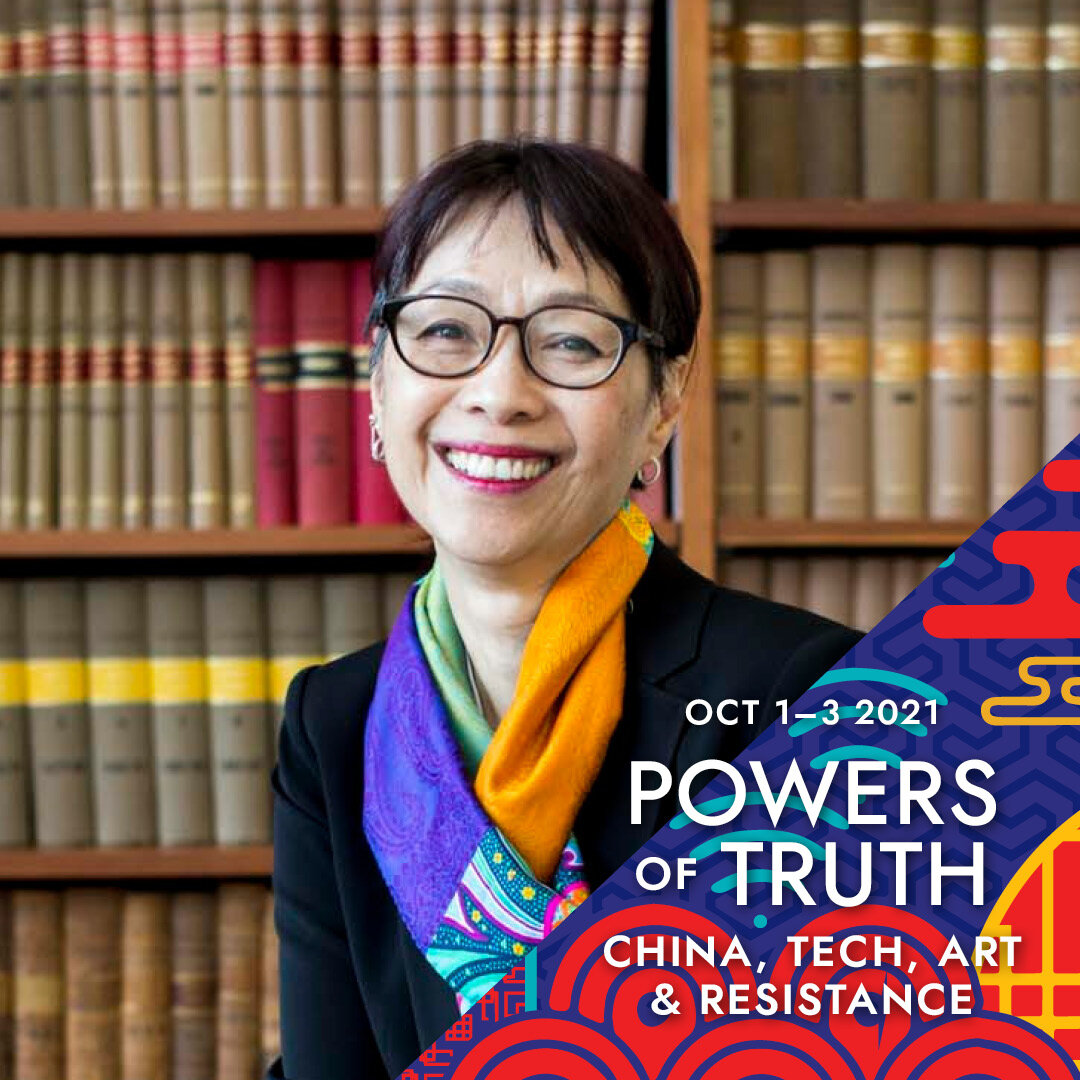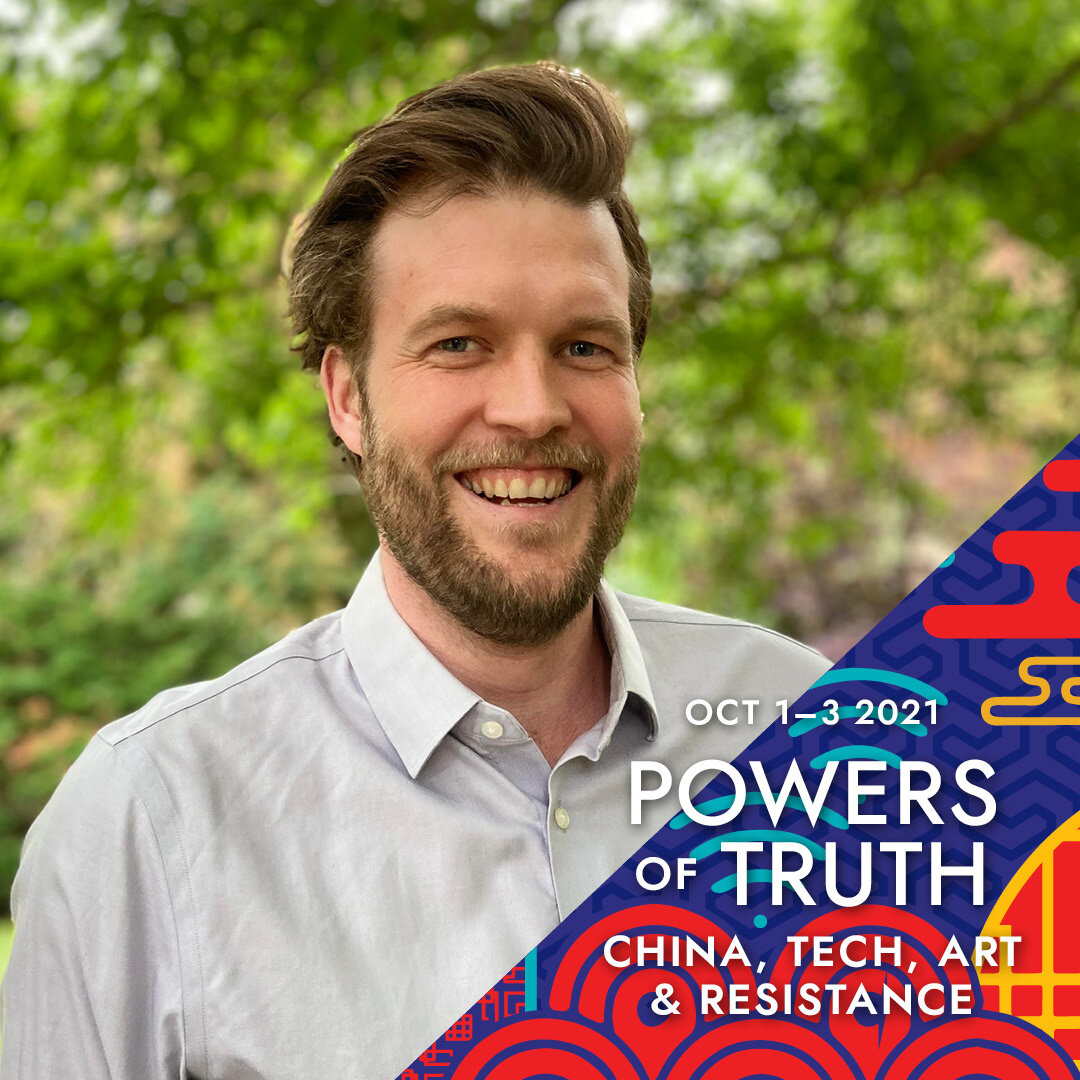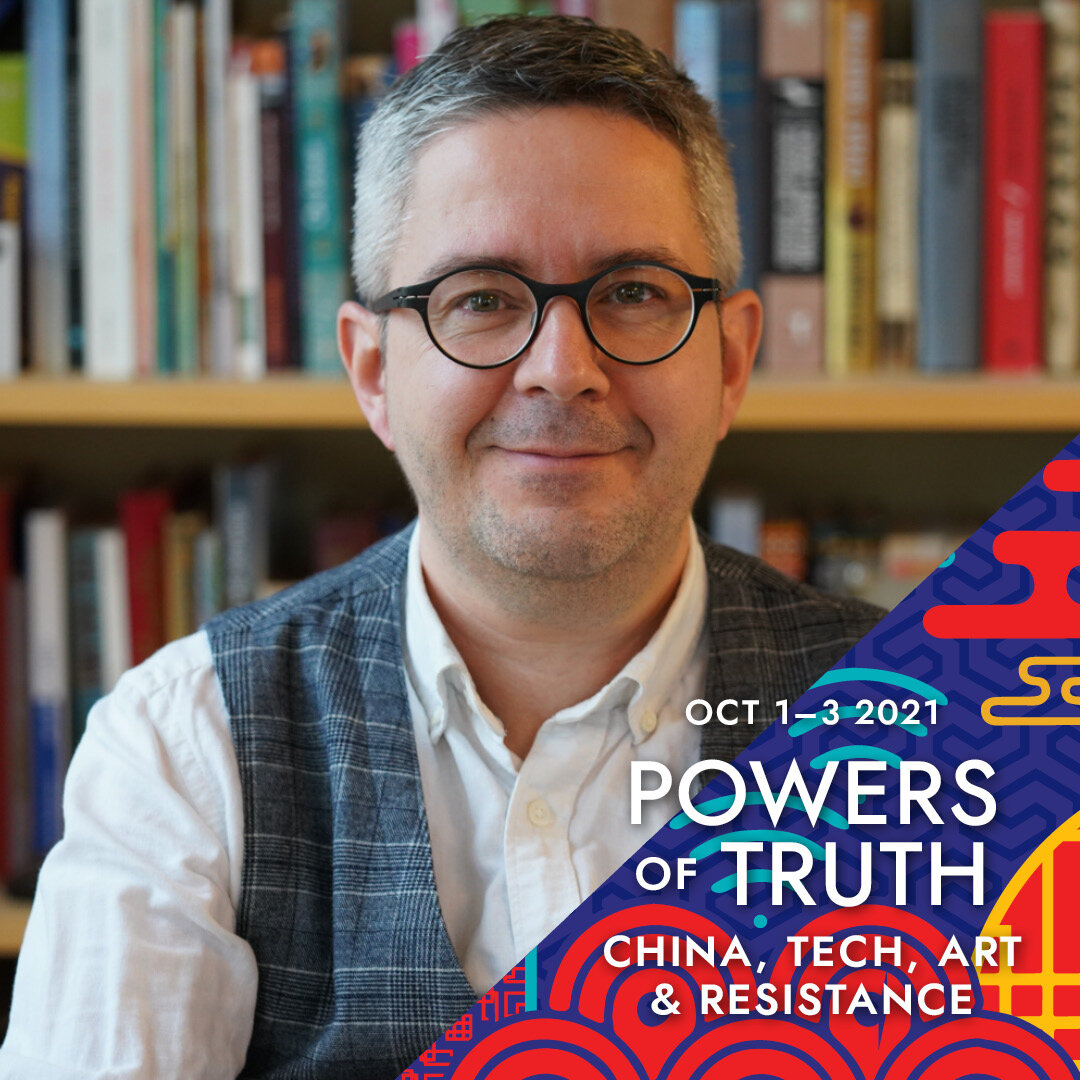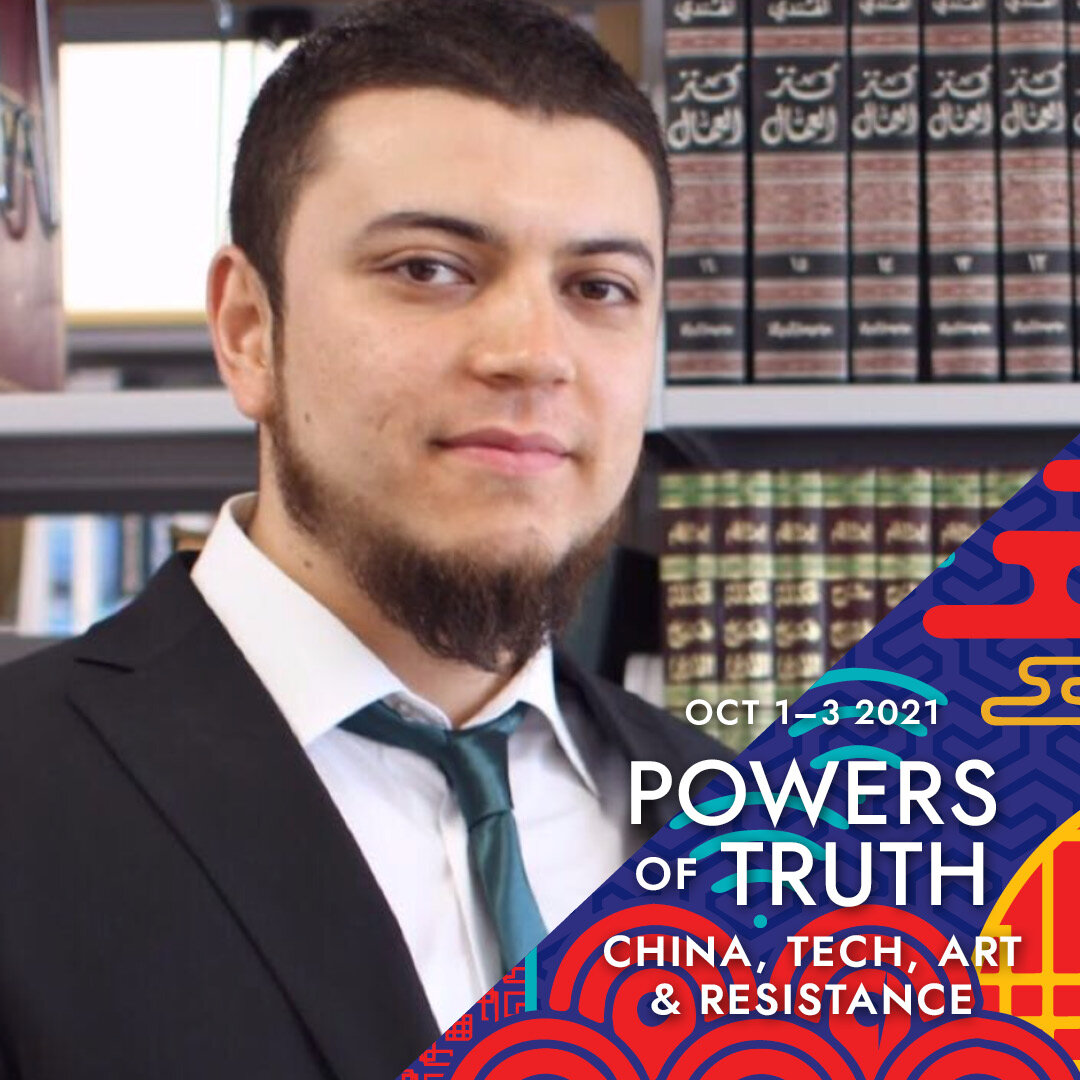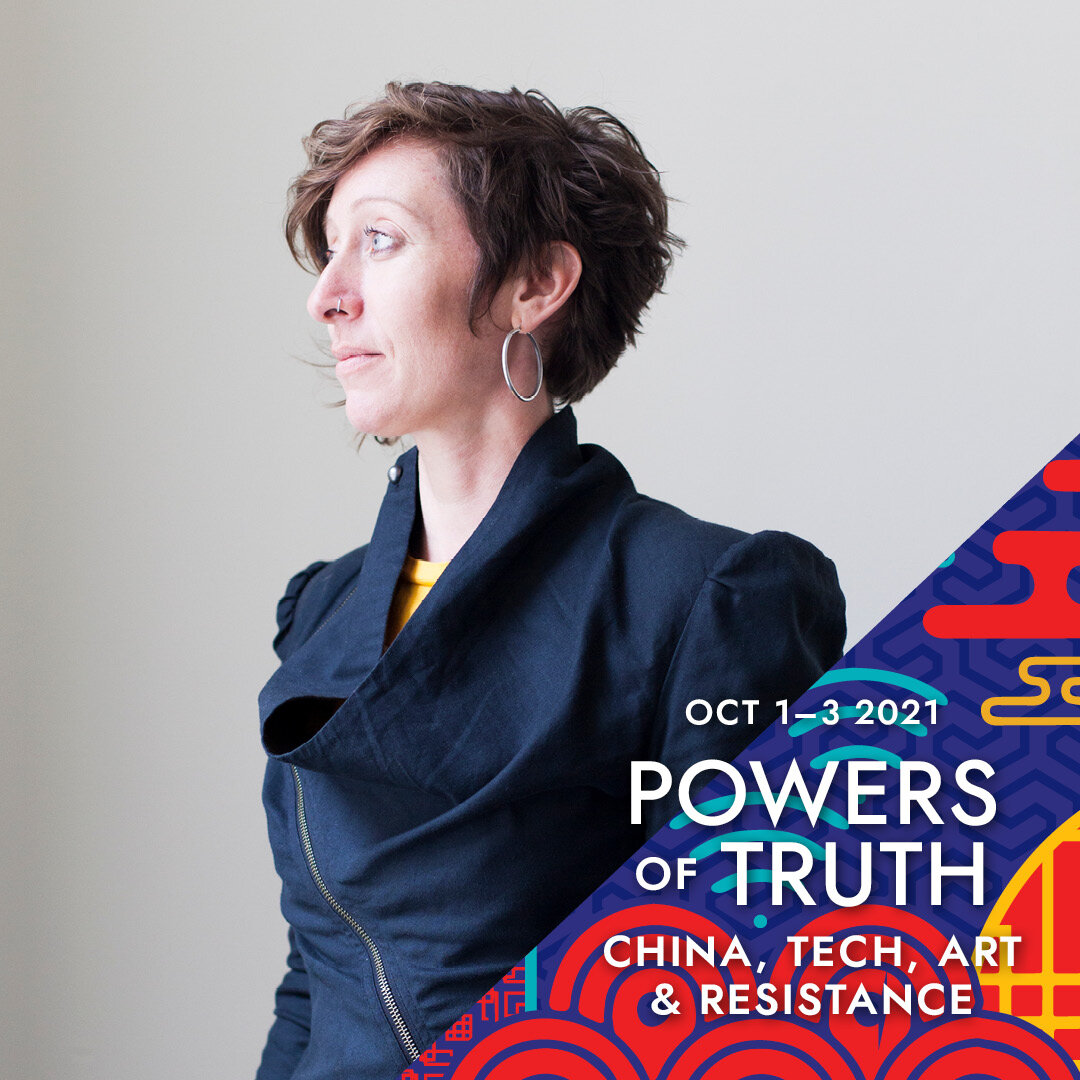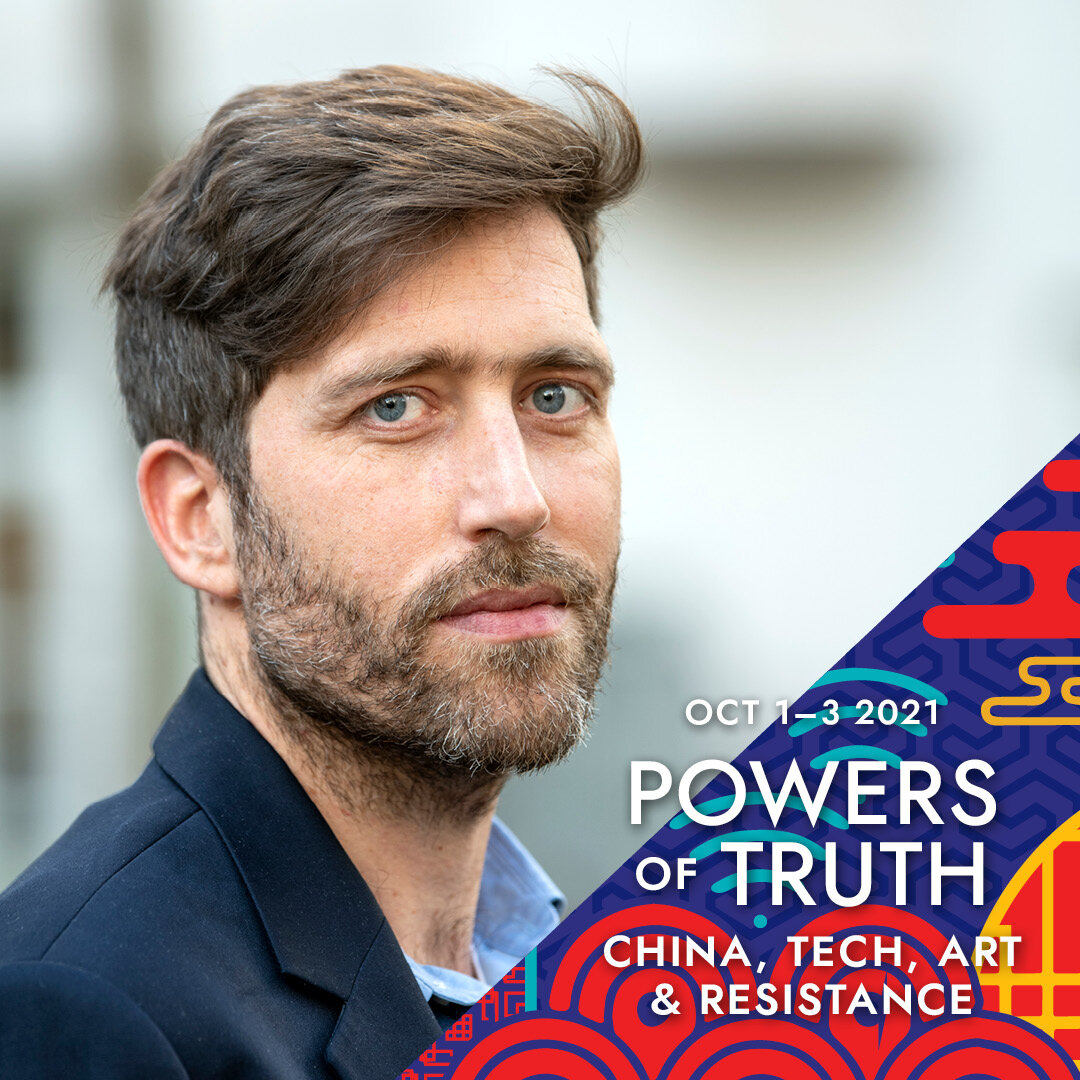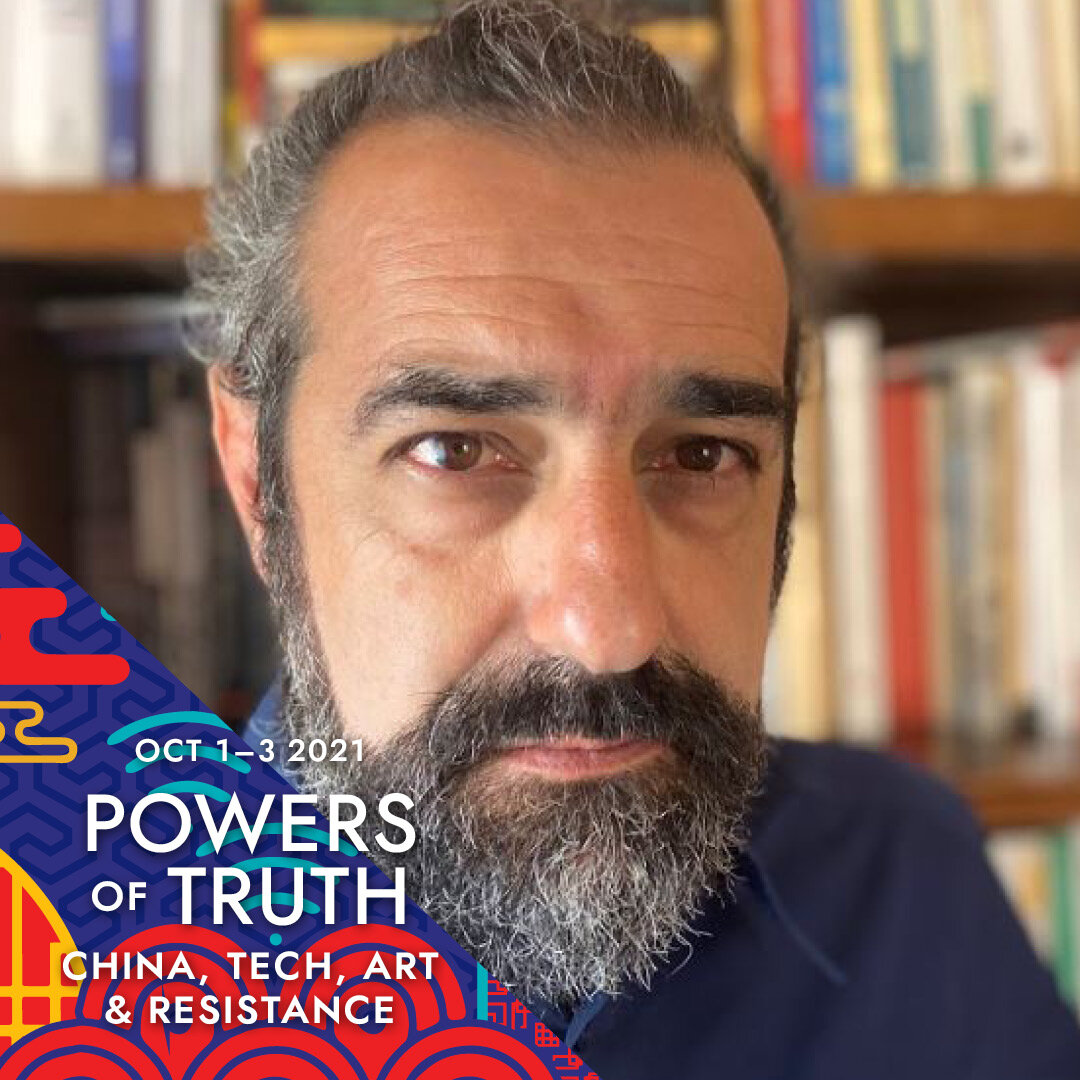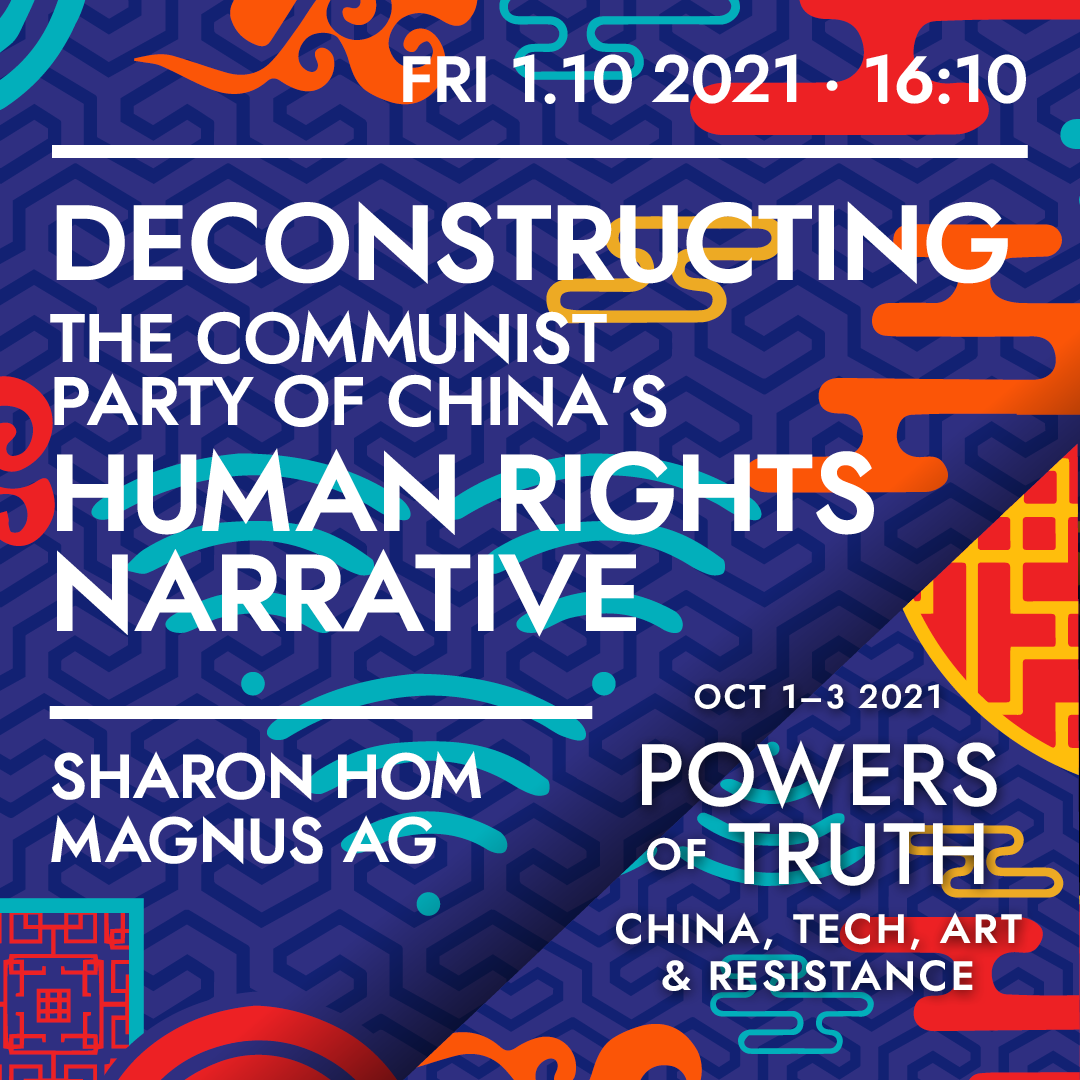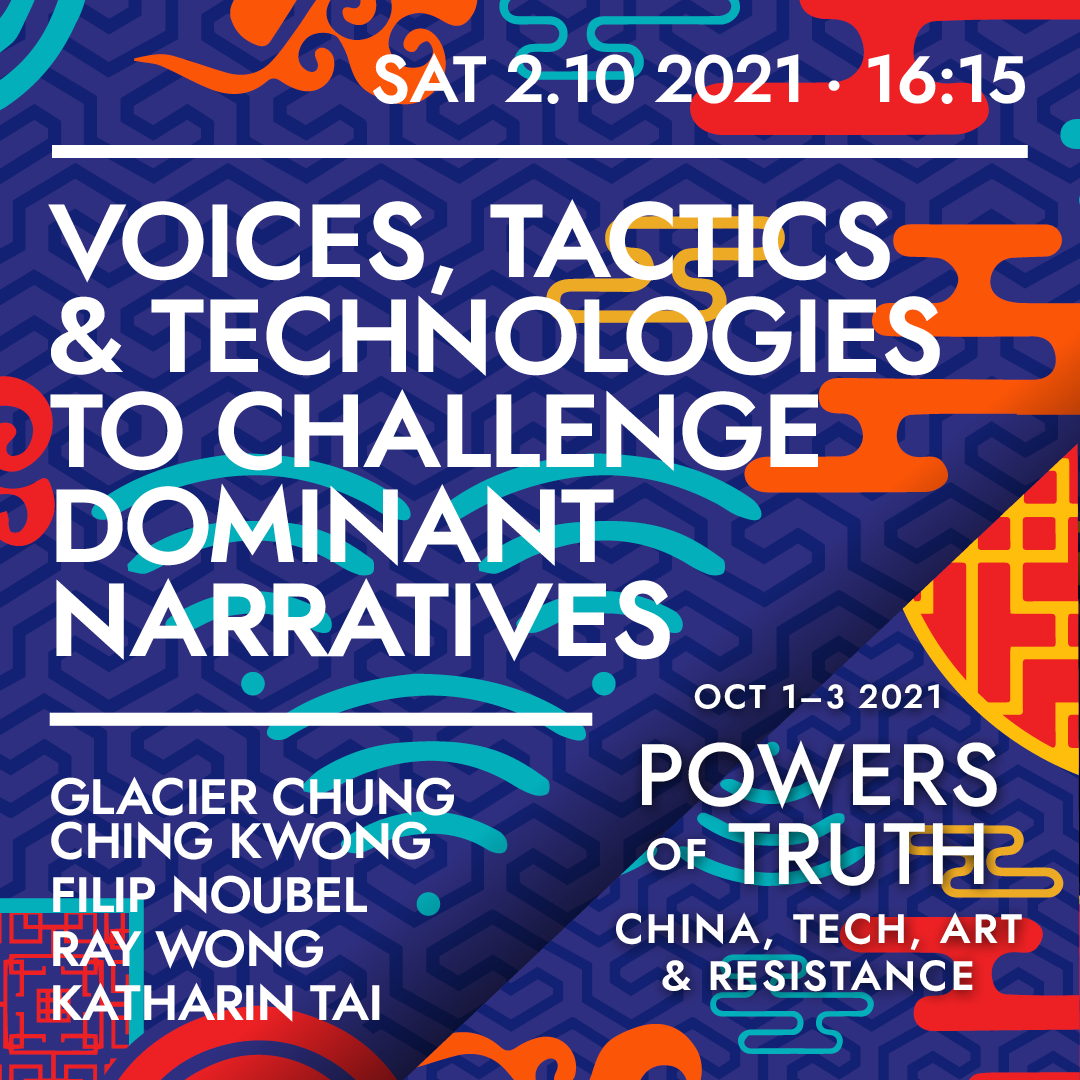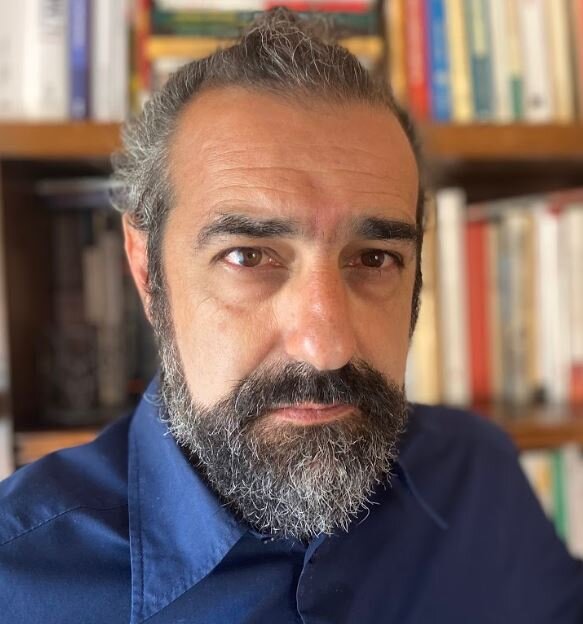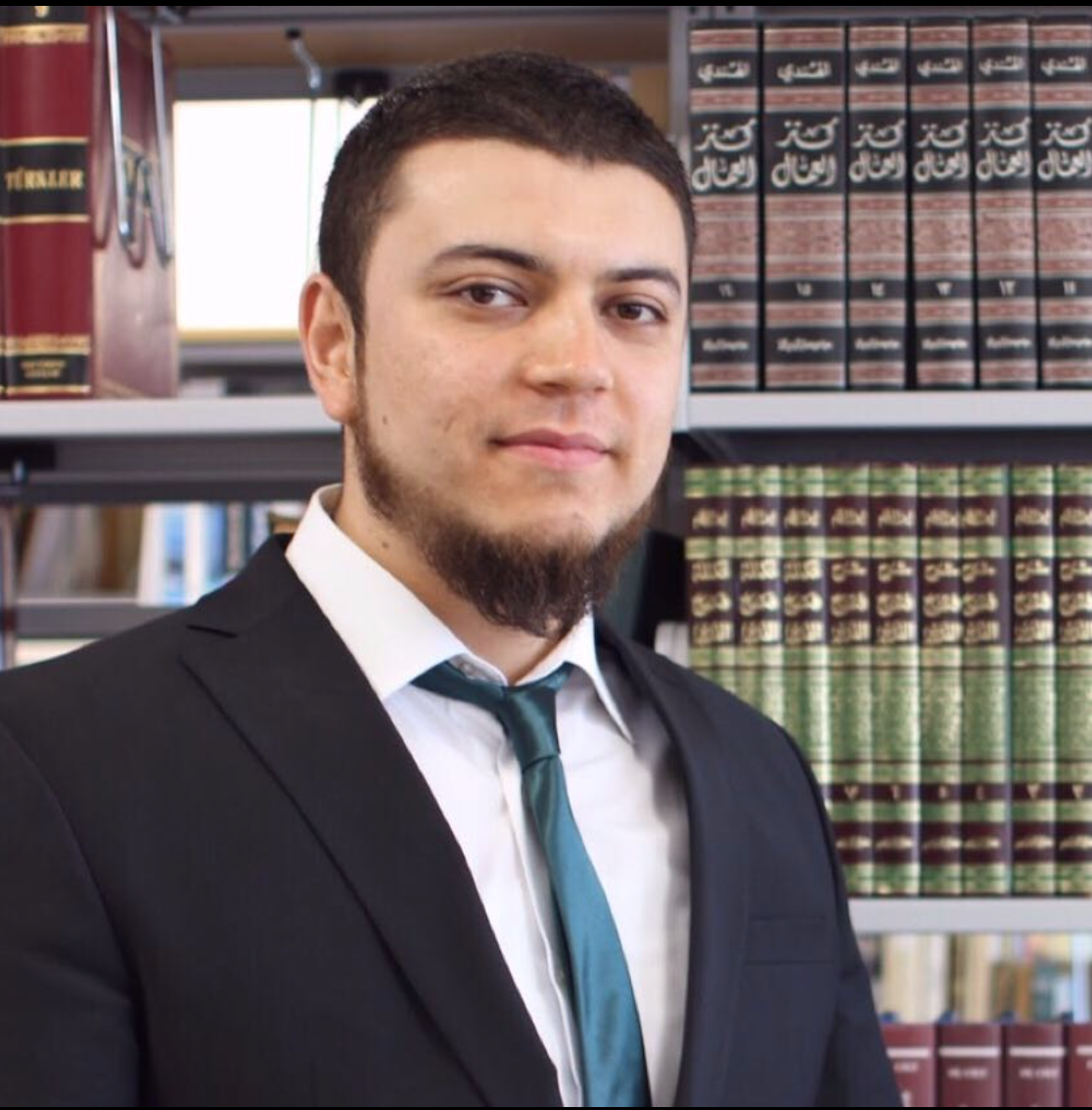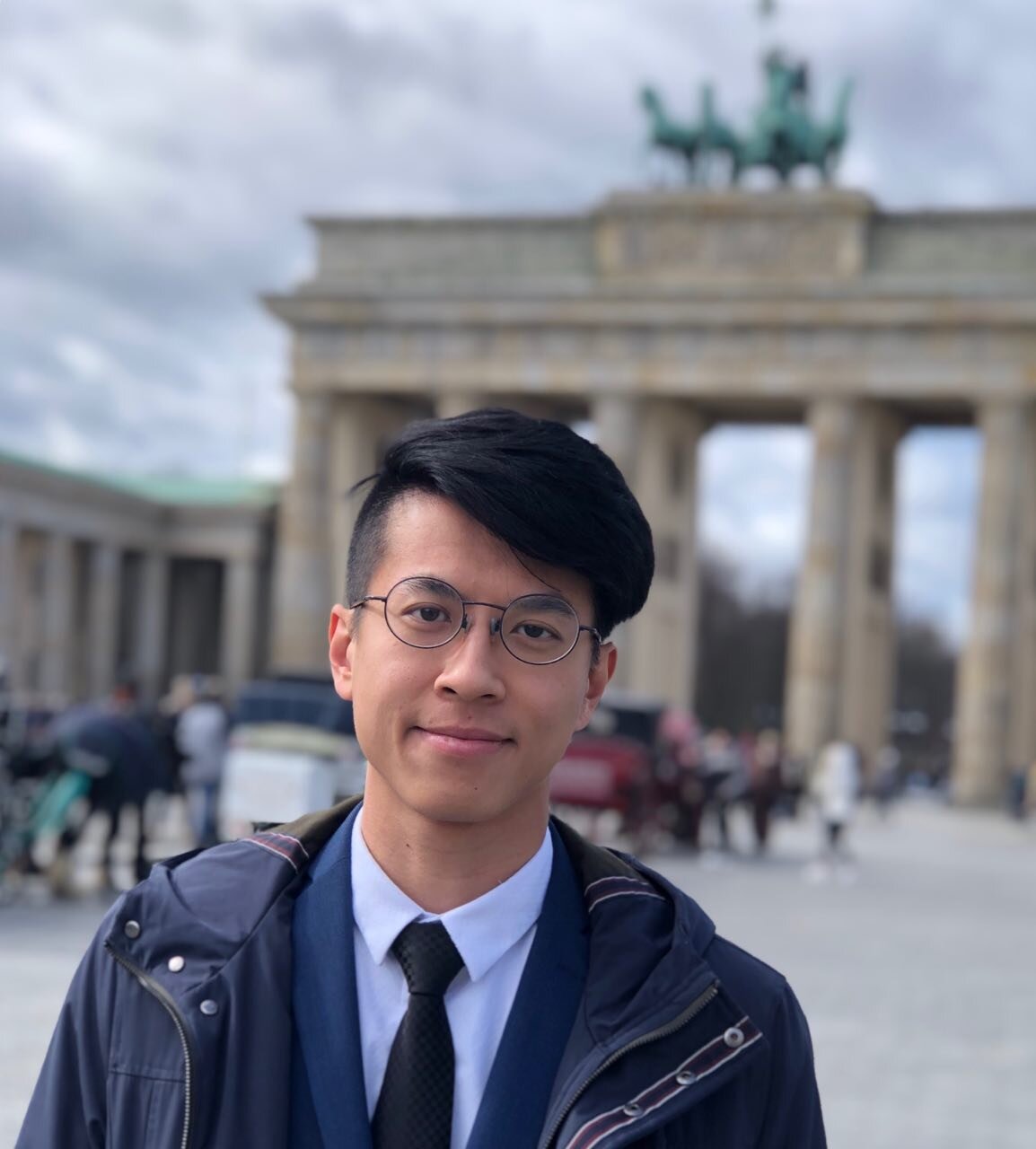#DNL24 · October 1–3 · 2021
POWERS OF TRUTH
CHINA, TECH, ART & RESISTANCE
THE 24TH CONFERENCE OF THE DISRUPTION NETWORK LAB
Kunstquartier Bethanien - Berlin
Watch all Keynotes & Panels
Schedule · Introduction · Full programme · Workshops · Speakers
Pre-events: Screening and Q&A · Black Bauhinia 香港本色 / BYOW Workshop
What power structures and technologies are framing the dominant narratives about China? Who is benefitting and who is resisting?
Conference Curated by Magnus Ag & Tatiana Bazzichelli.
LOCATION: STUDIO 1, KUNSTQUARTIER BETHANIEN, MARIANNENPLATZ 2, 10997 BERLIN
CORONA: The 3G rule (tested/vaccinated/recovered) applies to the whole conference. Wearing a medical mask that covers mouth and nose is mandatory.
Back to top
CONFERENCE SCHEDULE
Friday, October 1 · 2021
16:00—16:10 · OPENING
Tatiana Bazzichelli (Programme Director, Disruption Network Lab, IT/DE), Magnus Ag (Journalist, Human Rights Advocate, Founder of Bridge Figures, DK/NO) & Lieke Ploeger (Community Director, Disruption Network Lab, NL/DE).
16:10–17:30 · KEYNOTE: Deconstructing the Communist Party of China’s Human Rights Narrative
Sharon Hom (Executive Director, Human Rights in China, HK/US).Moderated by Magnus Ag (Journalist, Human Rights Advocate, Founder of Bridge Figures, DK/NO).
17:30—18:30 · BREAK
18:30–20:15 · PANEL: Reporting on Xinjiang: Firsthand Accounts & Big Data to Investigate the Truth
Arslan Hidayat (Uyghur Rights Activist, AU), Megha Rajagopalan (Award-winning International Correspondent for BuzzFeed News, UK), Maya Wang (Senior China researcher in the Asia division, Human Rights Watch). Moderated by Stijn Deklerck (Amnesty International Netherland, BE/NL).
Saturday, October 2 · 2021
14:00–15:30 · PANEL: Art & Resistance from the Mainland to the Diaspora
Badiucao (Cartoonist and Activist, CH/AU), Popo Fan (Filmmaker, Writer and Activist, CN/DE), Mai Corlin (Postdoctoral Fellow, University of Copenhagen, DK). Moderated by Melissa Chan (Journalist, US).
15:30—16:15 · BREAK
16:15–17:45 · PANEL: Voices, Tactics & Technologies to Challenge Dominant Narratives
Glacier Chung Ching Kwong (Hong Kong Political and Digital Rights Activist, PhD Student in Law, University of Hamburg, HK/DE), Filip Noubel (Managing Editor at Global Voices, CZ), Ray Wong (Hong Kong Activist, Founder of Hong Kong Indigenous, HK/DE). Moderated by Katharin Tai (Journalist, Academic and Policy Analyst, DE).
17:45—18:30 · BREAK
18:30–20:00 · KEYNOTE: Surveilling a Surveillance State: An Ethical Dilemma
Simone Pieranni (Journalist, IT), Jack Poulson (Executive Director, Tech Inquiry, US).
Moderated by Tatiana Bazzichelli (Programme Director, Disruption Network Lab, IT/DE).
20:00 · CLOSING
Back to top
COMMUNITY WORKSHOPS
Sunday, October 3 · 2021
11:00—13:00 · WORKSHOP
Digital Self-defense 101 - You need protection whether or not you have something to hide
With: Glacier Chung Ching Kwong (Hong Kong Political and Digital Rights Activist, PhD Student in Law, University of Hamburg, HK/DE). Read more & register
14:30—17:00 · WORKSHOP
Using Satellite Imagery to Investigate Xinjiang's Detention Camps
With: Alison Killing (Architect and Journalist, UK/NL) and Megha Rajagopalan (Award-winning International Correspondent for BuzzFeed News, UK). Read more & register
Back to top
Pre-Events & Meetups
Introduction
POWERS OF TRUTH
CHINA, TECH, ART & RESISTANCE
Tactics of Empowerment – Part 5
During the COVID-19 pandemic anti-China sentiments hit its highest levels since 1989, although the history of racism against Chinese populations in the West goes back to colonial times. At the same time, leaked documents highlight the Beijing government's direct involvement in large-scale human rights violations in Xinjiang. How can we look at the Chinese context advocating for human rights and democracy beyond propaganda and mainstream political narratives?
The conference POWERS OF TRUTH brings together artists, journalists, activists and tech experts inside and outside China to better navigate and understand dominant narratives around China we are exposed to from Beijing to Washington and Brussels, from Silicon Valley to Shenzhen.
The COVID-19 pandemic has shown that politics, economy, and technical infrastructures defy borders. What is developed in the Eastern part of the world influences on a large scale what is happening in Europe, as well as in the South and the West.
China is expanding its influence in the world economy and in the technological sectors, growing very rapidly and lifting millions out of poverty, while defining new geopolitical alliances. As U.S. strategic engagements with China shift from one administration to the next, the European Union is forced to develop its own strategies for how long-term regional and global stability is ensured and democratic values upheld.
What can we learn about methods and tactics of survival, agency, and hope among the Chinese communities? How can we envision a future in which the diversity of China’s many ethnicities, identities, and cultures will be respected? How can we understand the coexistence of censorship and a pioneering technological and economical innovation in China?
The conference POWERS OF TRUTH focuses on the importance of understanding the current Chinese context analysing three main streams: technological impact, artistic experimentation and human rights protection in China and beyond.
FUNDED BY: SENATSVERWALTUNG FÜR KULTUR UND EUROPA (SENATE DEPARTMENT FOR CULTURE AND EUROPE, BERLIN), BUNDESZENTRALE FÜR POLITISCHE BILDUNG, THE REVA AND DAVID LOGAN FOUNDATION (GRANT PROVIDED BY NEO PHILANTHROPY), CHECKPOINT CHARLIE FOUNDATION. SUPPORTED [IN PART] BY A GRANT FROM THE FOUNDATION OPEN SOCIETY INSTITUTE IN COOPERATION WITH THE OSIFE OF THE OPEN SOCIETY FOUNDATIONS.
PARTNER VENUES: KUNSTRAUM KREUZBERG/BETHANIEN, ACUD MACHT NEU.
Knowledge Partner: Bridge Figures
MEDIA PARTNERS: TAZ, DIE TAGESZEITUNG, EXBERLINER, il mitte.
streaming partner: boiling head media.
outreach partner: aksioma.
IN ENGLISH LANGUAGE.
Technological impact
What are the roles of TikTok, Google, Chinese and American companies in the technological arms race for hearts and minds, and in building surveillance tools that are used to violate human rights? Which tactics of survival, agency, and hope can we find among Chinese communities on the mainland and beyond, confronting state-sponsored surveillance and censorship on one side and rising anti-China sentiments on the other?
Artistic experimentation
What do socially engaged art communities in and beyond the mainland look like? We will touch upon the Bishan Commune, the innovative tactics of the Hong Kong 2019 protests, as well as the mainstreaming of Beijing's underground scene.
Human rights protection
Who is telling the truth? With the aim encourage reporting on human rights violations in a closed region, we investigate the evidence and disinformation around the arbitrary detention of the ethnic minorities in “political re-education” camps in Xinjiang, while dedicating special attention to decolonial left perspectives on Hong Kong and efforts to confront anti-Asian hate narratives around the world.
BACK TO TOP
Full Programme
Friday, October 1 · 2021
16:00–16:10 · OPENING
Tatiana Bazzichelli (Programme Director, Disruption Network Lab, IT/DE), Magnus Ag (Journalist, Human Rights Advocate, Founder of Bridge Figures, DK/NO) & Lieke Ploeger (Community Director, Disruption Network Lab, NL/DE).
16:10–17:30 · KEYNOTE
Deconstructing the Communist Party of China’s Human Rights Narrative
Sharon Hom (Executive Director, Human Rights in China, HK/US).
Moderated by Magnus Ag (Journalist, Human Rights Advocate, Founder of Bridge Figures, DK/NO).
In recent decades, the Communist Party of China (CPC) has increasingly challenged international human rights norms and values and aggressively promoted its alternative models for human rights, development, and even, as it claims, “democracy.” Framed within a narrative of global resistance against Western imperialism and exploitation, the CPC now centers its ideological battle on the narrative that the U.S. (and its allies) are trying to impose their values—values of democracy and fundamental rights—on countries with values that prioritize collective aims, values that have been shaped by their respective historical, cultural, and economic conditions. What are the power dimensions of this narrative? How is it promoted? Who benefits from, who is harmed by uncritical or implicit acceptance of it? And where do fundamental rights enshrined in international human rights treaties fit into this contest? Beyond discursive contests, why does this matter? How can progressive communities push back and contribute to more empowering space for and solidarity with domestic rights defenders and citizen actions?
18:30–20:15 · PANEL
Reporting on Xinjiang: Firsthand Accounts & Big Data to Investigate the Truth
Arslan Hidayat (Uyghur Rights Activist, AU), Megha Rajagopalan (Award-winning International Correspondent for BuzzFeed News, UK), Maya Wang (Senior China researcher in the Asia division, Human Rights Watch). Moderated by Stijn Deklerck (Amnesty International Netherland, BE/NL).
This panel focuses on the current situation in Xinjiang, why Beijing authorities have been taking strict measures to prevent international media from reporting on the region and on the so-called “patriotic re-education camps” where Uyghurs and other Turkic Muslims in the northwest region of Xinjiang are detained. We plan to analyse how the Uyghurs are subject to surveillance in the name of counterterrorism, and how tools such as open source data, geolocation techniques and satellite photography can help to investigate the truth in Xinjiang.
While the Chinese government's oppression of Turkic Muslims is not a new phenomenon, going back to the CCP invasion in 1949, it has reached unprecedented levels since 2017. As many as a million people have been arbitrarily detained in 300 to 400 facilities which include "political re-education" camps, “vocational schools”, pretrial detention centers, and prisons. Courts have handed down harsh prison sentences without due process, sentencing Turkic individuals to years in prison merely for sending an Islamic religious recording to a family member or downloading e-books in Uyghur. Detainees and prisoners are subjected to torture and other ill-treatment, cultural and political indoctrination, and forced labor. The oppression continues outside the detention facilities: the Chinese authorities impose on Turkic Muslims a pervasive system of mass surveillance, controls on movement, arbitrary arrest and enforced disappearance, cultural and religious erasure, and family separation.
Arslan Hidayat will focus on what is happening in the Uyghur Region and on the so-called Uyghur Genocide. He will discuss why the Uyghurs are being oppressed, focusing on the dichotomy between the narrative provided by the Chinese government (placing Uyghurs in “re-education/vocational schools” in order to make them loyal Chinese citizens, to provide steady employment and avoid risks of terrorist attacks against the government or civilians, considering them as uneducated group of people prone to become terrorists) vs. what he considers the actual reason (to strip the Uyghurs of their cultural identity through, banning of the Uyghur language, religious practices, conform and accept Xi Jinping thought as their main ideology and essentially transforming Uyghurs into Han-Chinese and assimilating them into the broader society). Furthermore, he will focus on the perception of this cycles of oppression from the Uyghurs themselves, being one of the many groups who are currently part of China, such as the Tibetans, Mongolians and others, that do not consider themselves to be part of China.
Megha Rajagopalan will trace back the last year investigation on Xinjiang she conducted with Alison Killing and Christo Buschek of BuzzFeed News, which won the 2021 Pulitzer Prize in International Reporting. The team at BuzzFeed News used geospatial analysis, architectural modeling, documents and interviews to cast light on the scope and scale of China's mass internment campaign targeting Muslim minorities in the Xinjiang region. Using these techniques, they geolocated dozens of camps and prisons in every county in the region. In doing so, they were able to track the remarkable growth of these facilities since 2016, when the government began its program in earnest. By measuring the floor areas of camps and prisons and comparing them to official Chinese prison regulations, they were also able to estimate the capacity of the whole system. Dozens of interviews with former detainees helped illuminate the abuses that take place inside internment camps as well as how people are targeted for detention.
Following the scope of exposing crimes against humanity in a region closed to outside observers, Maya Wang will discuss the challenges of documenting this human rights crisis. What is the weight of evidence for these various forms of violations, and how does one weigh the truth given the difficulties accessing the region? The Chinese government has claimed that the detainees in political education camps are, in fact, "students" who voluntarily attend these "schools." It has smeared researchers involved in the investigations, undermining their credibility by spreading false information about their private lives. In this presentation, in addition to presenting research work for Human Rights Watch on Xinjiang which spans from documenting the authorities forced homestay programme known as "Family Together" to exposing Xinjiang's various facets of mass surveillance systems, Wang will dive into her discovery and investigation of Xinjiang's big data system, the Integrated Joint Operations Platform (IJOP), which is one of the main systems Chinese authorities use for mass surveillance in Xinjiang to aggregates data about people and flags to officials those it deems potentially threatening. Wang will discuss how, by reverse engineering a police mobile app officials use to communicate with the IJOP, she was able to know specifically the kinds of behaviors and people this mass surveillance system — and the Xinjiang crackdown — targets. Her findings also shed light on how mass surveillance functions in China. While Xinjiang's systems are particularly intrusive, their basic designs are similar to those the police are planning and implementing throughout China. How does the use of technology impact people's mind and behavior, and how did it influence Xinjiang's crackdown? As we live in a world where increasingly our behavior and relationships are being collected, analysed and logged by companies and governments, what is the future for human freedom?
Saturday, October 2 · 2021
14:00–15:30 · PANEL
Art & Resistance from the Mainland to the Diaspora
Badiucao (Cartoonist and Activist, CH/AU), Popo Fan (Filmmaker, Writer and Activist, CN/DE), Mai Corlin (Postdoctoral Fellow, University of Copenhagen, DK). Moderated by Melissa Chan (Journalist, US).
The panel brings together artists, researchers and journalists investigating the complexity of socially engaged art in different Chinese contexts. What role does the artist play in protests movements in Hong Kong versus the artist's role in rural societies on the mainland? What happens to an artistic practice when recreated in the diaspora and how are technologies connecting or challenging the artistic communities across borders?
During the 2019 Hong Kong pro-democracy protests, Chinese artist and activist Badiucao’s iconic cartoons - distributed via Instagram from exile in Australia - captured and expressed the outrage of many protesters in the streets of Hong Kong. Badiucao will talk about his artistic practice and the role of digital resistance in and beyond the physical borders of mainland China.
Popo Fan’s queer documentaries Chinese Closet, Mama Rainbow, and Papa Rainbow focusing on family issues in China have made a notable impact on Chinese society. In 2014, his film Mama Rainbow was removed from the Chinese internet. Popo sued the government for censoring his film as a way of seeking freedom of speech in China. In 2017, he decided to move to Berlin asking himself: Life is to eat or to speak? There is more space to speak in Berlin, but the food scene doesn’t satisfy him. Moreover, due to the pandemic, Asian food culture has been stigmatised more than ever. If we are what we eat, then who are we? How can we react to social justice, racial discrimination, climate change with our daily diet? Can we make eating even activism and artistic? Popo is going to share video clips, talking about how to satisfy our mouths fulfilled by eating, speaking, and more.
What do socially engaged art projects currently look like in mainland China? And how do they practice in a complex Chinese political reality? Mai Corlin’s talk is concerned with socially engaged art practices in the People’s Republic of China (PRC), focusing on a smaller set of radical art practices that attach significant importance to forging mutual relationships with like-minded communities across East Asia. Based on the notion of mutual aid, they propose work-study groups and sharing sessions, initiate new modes of distribution, and develop practices of how to organise in common as a collective. They promote smaller units, such as the commune, the autonomous youth house, the art space or the farm, understanding the platform of the collective as a vehicle for the formation of new social bonds. Drawing on her book The Bishan Commune and the Practice of Socially Engaged Art in Rural China (2020) and subsequent research, Colin will show how some of these projects practice in the face of power and people in a complex Chinese reality.
16:15–17:45 · PANEL
Voices, Tactics & Technologies to Challenge Dominant Narratives
Glacier Chung Ching Kwong (Hong Kong Political and Digital Rights Activist, PhD Student in Law, University of Hamburg, HK/DE), Filip Noubel (Managing Editor at Global Voices, CZ), Ray Wong (Hong Kong Activist, Founder of Hong Kong Indigenous, HK/DE). Moderated by Katharin Tai (Journalist, Academic and Policy Analyst, DE).
From the streets of Hong Kong to the massive infrastructure investments made by the Chinese government from Kyrgyzstan to Peru, Nigeria to Greece, Beijing will have one way of framing developments and Washington another. But what is the lived reality in the communities directly affected? This panel focuses on how people's voices - amplified or quelled with technology - tell their stories in the face of China's economic, technological and political expansions.
In the context of Hong Kong, Glacier Chung Ching Kwong will speak about the 2019 Anti-Extradition-Law movement as the first successful leaderless movement in the city's history. Leaderless structure and organising could never happen without the aid of technology — it helped protesters to organise, build trust and ties, to preserve history, and resolve conflicts among participants. But at the same time, technology has always been used against human rights in Hong Kong — surveillance and different technologies were used to dismantle the movement. The government uses facial recognition, makes data requests to private entities, deploys hacking software to gather information about human rights defenders, or puts charges on them with the information gathered. What can we learn from the case of Hong Kong so that we can understand more about China and how do we defend the truth?
Known as a centerpiece in China’s foreign policy, the Belt and Road Initiative (BRI) focuses on infrastructure development with investments in nearly 70 countries and includes a significant soft power component. Focusing on Belt and Road Initiative narratives, Filip Noubel asks: When China decides to claim its superpower role at a global scale, what are perceptions on the ground? Assessments of success and failure of the BRI abund, inside and outside of China, and often oppose strongly opinionated definitions: poverty alleviation versus colonialism, GDP growth versus environmental protection, access to vaccines versus increased digital surveillance. In order to nuance such views, it might be better to ask: Who benefits and who doesn’t in each country that hosts BRI projects? What challenges is Beijing facing when developing those projects? Some of the answers can be found in a new, multilingual and on-going media observatory project conducted by Global Voices: China’s Belt & Road Initiative: Deal or steal?
Ray Wong is the first Hong Kong activist granted asylum in Europe. As the founder of the group Hong Kong Indigenous he will talk about how the Anti-Extradition-Law movement in Hong Kong in 2019 surprised the world not only by the persistence of the people of Hong Kong, but also protestor’s innovative tactics and the use of technology. Along with the account of the presenter’s first-hand experiences as an activist in Hong Kong, the presentation will focus on the evolution of protestors’ strategies from 2014 onwards. Furthermore, the presenter will touch upon the relation between the movement and the Hong Konger identity, a topic that has not been well discussed due to its controversial nature.
18:30–20:00 · KEYNOTE
Surveilling a Surveillance State: An Ethical Dilemma
Simone Pieranni (Journalist, IT), Jack Poulson (Executive Director, Tech Inquiry, US).
Moderated by Tatiana Bazzichelli (Programme Director, Disruption Network Lab, IT/DE).
This keynote connects two important perspectives on the technological analysis of the Chinese context. On one side, we will analyse the issues raised by studies seeing China as one of the most prominent examples of a surveillance State, integrating the role of pervasive facial recognition with the massified usage of apps, platforms, and social credits; on the other side, we will discuss the problematic of the influence - through financing, software, data, and reports – of public and private US intelligence and AI-driven social media surveillance in NGO analysis of US adversaries, such as China.
Drawing upon the insight research for his book Red Mirror (2020), which foreshadows our near future through artificial intelligence, self-driving vehicles, green technologies, smart cities, and facial recognition in China, Simone Pieranni will address the question of being China a present dystopia or our mirror. The smart city projects of the Chinese government outline a future of a hyper-controlled metropolis 24 hours a day; they are the product of innovation "with Chinese characteristics": to increase wealth as well as the possibility of control. But underneath the surface - often described as a dystopia by Westerners - there are some factors to take into account: the work of coders, laborers (and riders, for example); the protests that in the last year have taken aim at the platforms for violating the privacy of citizens. And as usual, the Chinese Communist Party seized the moment: passing a new privacy law, declaring the 996 system (work hours from 9 am to 9 pm, six days a week) illegal, and fining the platforms.
Jack Poulson will focus his keynote on the reasons why we must monitor weapons and surveillance procurement more carefully. As part of a detailed investigation into subcontracting with the US government involving social media surveillance and location-tracking data brokers, Tech Inquiry has found both that the American data fusion company Palantir Technologies has helped aggregate such data - referred to as "Publicly Available Information" - as part of a contract tied to Project Maven (the Pentagon programme to build an AI-powered drone surveillance platform), and that prominent US think tanks have subcontracted alongside location data brokers. He aims to discuss with international human rights experts and journalists about how to account for widely cited analysis of US competitors - particularly China and North Korea - performed by nonprofits who also discretely (sub)contract with US intelligence agencies. Specific examples will be presented. Download the full report, Easy as PAI (Publicly Available Information)
Sunday, October 3 · 2021
11:00–13:00 · COMMUNITY WORKSHOP
Digital Self-defense 101 - You need protection whether or not you have something to hide
With: Glacier Chung Ching Kwong (Hong Kong Political and Digital Rights Activist, PhD Student in Law, University of Hamburg, HK/DE)
Cost: €8 · Language: English · Tickets
Do you feel safe enough as an active participant of civil society? Do you know what happens to your personal data once they are given out? What would happen if you dropped your phone today? We are living in an age of commercial and governmental surveillance, that means we are constantly monitored by different entities. To protect one's privacy and digital self, it is of vital importance to know what tools to use and what measures to take. Most importantly - what are you protecting yourself from?
In this 2-hour workshop, Hong Kong political and digital rights activist Glacier Chung Ching Kwong will teach the basics of digital self-defense and go into why you need protection, whether or not you have something to hide.
REGISTRATION
The number of participants is limited to 15. Booking is essential. Please get your ticket here
Please bring your laptop and/or cell phone to participate in the workshop
No prior experience is required
14:30–17:00 · COMMUNITY WORKSHOP
Using Satellite Imagery to Investigate Xinjiang's Detention Camps
With: Alison Killing (Architect and Journalist, UK/NL) and Megha Rajagopalan (Award-winning International Correspondent for BuzzFeed News, IN/UK)
Cost: €8 · Language: English · Tickets
A hands-on exploration of the network of internment camps and prisons built across Xinjiang as part of the Chinese government’s campaign against Muslim minorities.
Surveillance and heavy restrictions on journalists’ movement have made it difficult to research this issue – we will look at the techniques that our team used to find and analyse the camp network regardless. We'll use Google Earth to analyse a small number of camps, developing skills in satellite imagery analysis and looking at the specific architectural and urban characteristics of the camp network.
REGISTRATION
The number of participants is limited to 16. Booking is essential. Please get your ticket here
Please bring your laptop, charger and mouse to participate in the workshop
No prior experience is required
The conference on October 1-2 is co-curated by Magnus Ag (Journalist, Human Rights Advocate, Founder of Bridge Figures, DK/NO) and Tatiana Bazzichelli (Programme Director, Disruption Network Lab, IT/DE).
The Activation community programme extends the conference with meetups leading up to the conference and follows it with community workshops on October 3 - curated by Lieke Ploeger (Community Director, Disruption Network Lab, NL/DE).
Back to top
Conference Speakers
Credits: Lam Chun Tung/Initium Media
Sharon K. Hom
Executive Director, Human Rights in China, HK/US
Sharon K. Hom is Executive Director of Human Rights in China (HRIC). Professor of law emerita at the CUNY School of Law, Hom taught law for 18 years, including training judges, lawyers, and law teachers in China. Hom has presented extensively before key European, U.S., and international policymakers on a variety of human rights issues, including Hong Kong, the impact of new technologies deployed by authoritarian regimes, and business and human rights. Hom appears as a commentator in broadcast programs worldwide and is quoted in major print media frequently. In 2007, she was named by the Wall Street Journal as one of the “50 Women to Watch.” Hom edited and contributed to: CHINESE WOMEN TRAVERSING DIASPORA: MEMOIRS, ESSAYS, AND POETRY (1999). Select culture reviews include: “Decency as Redemptive: A Review of Li Yang’s Blind Shaft”, “Viewing Hero: A Conversation about History, Art and Responsibility”, and “Empowering Local Voices and Building Virtual Communities”.
Credits: Mark Sommerfeld
Jack Poulson
Executive Director, Tech Inquiry, US
Jack Poulson is the Executive Director of the nonprofit Tech Inquiry, where he leads a project for exploring international procurement and lobbying. He was previously a Senior Research Scientist in Google's AI division and, before that, an Assistant Professor of Mathematics at Stanford.
Twitter: @_jack_poulson
Simone Pieranni
Journalist, IT
Simone Pieranni is a journalist at the Italian newspaper Il Manifesto. In 2009, he founded China Files, a press agency in Beijing which provides news on China to the Italian media. Simone lived in China from 2006 to 2014. He has a column in the weekly magazine Espresso and is the author of Red Mirror (Laterza, 2020), which has also been translated and published in France and Latin America.
Instagram: @simopieranni
Twitter: @simopieranni
Magnus Ag
Journalist, Human Rights Advocate, Founder of Bridge Figures, DK
Magnus Ag is a human rights advocate, journalist, researcher and the founder of Bridge Figures (a human rights project in a data-driven world). He is the public interest infrastructure advisor to International Media Support and also serves as an advisor to Columbia University’s signature research project The Politics of Visual Art in a Changing World and to Avant-Garde Lawyers. He has previously lived for a couple of years in Hong Kong where he wrote long-form journalism about the 2019 pro-democracy movement for leading international publications. He has defended the right to artistic freedom with Copenhagen-based Freemuse and served as the Assistant Advocacy Director for the Committee to Protect Journalists during five years in New York.
Megha Rajagopalan
Award-winning International Correspondent for BuzzFeed News, UK
Megha Rajagopalan is a senior correspondent for BuzzFeed News. She has been a reporter for BuzzFeed News based in China and Thailand as well as in Israel and the Palestinian territories, and before that she was a political correspondent for Reuters in China.
Maya Wang
Senior China researcher in the Asia division, Human Rights Watch
Maya Wang is the senior China researcher in the Asia division at Human Rights Watch. Wang has researched and written extensively on the use of torture, arbitrary detention, human rights defenders, civil society, disability rights, and women’s rights in China. She is also an expert on human rights in Hong Kong and Xinjiang. In recent years, her original research on China’s use of technology for mass surveillance, including the use of biometrics, artificial intelligence, and big data, has helped galvanize international attention on these developments in China and globally. Wang has published on major international media outlets, including the Wall Street Journal, the Washington Post, ChinaFile, the Diplomat, the Guardian, and has been frequently quoted by international media including the New York Times, Reuters, Bloomberg News, and the Associated Press.
Stijn Deklerck
Amnesty International Netherlands, BE/NL
Stijn Deklerck is a senior officer in human rights at Amnesty International Netherlands. Prior to joining Amnesty, he worked at various Chinese and international NGOs, and produced several socially engaged documentaries. He holds a master’s degree in law and a PhD in sinology from the University of Leuven (Belgium), where he teaches on Chinese law.
Arslan Hidayat
Uyghur Rights Activist, AU
Arslan Hidayat is an Uyghur rights activist from Sydney, Australia. He is the General Secretary of the Uyghur Revival Association (URA), an Uyghur rights organisation which sheds light and raises awareness on the plight of Uyghurs in Chinese-occupied East Turkistan. Arslan also runs ‘Talk East Turkestan,’ the most popular Facebook page highlighting the Uyghur’s plight in the English language. Arslan has been invited to share his expertise about the Uyghur’s plight by giving live studio interviews and sharing his insights on mainstream news media outlets like the BBC, the Guardian, Al-Jazeera, CNN, TRT WORLD, AFP and many others.
Twitter: @arslan_hidayat
Badiucao
Cartoonist and Activist, CH/AU,
Badiucao (Chinese: 巴丢草; born c. 1986) is a Chinese political cartoonist, artist and rights activist based in Australia. He is regarded as one of China’s most prolific and well-known political cartoonists. He adopted his pen-name to protect his identity. Badiucao utilizes satire and pop culture references to convey his message. He often manipulates archetypal images from Communist Party propaganda to make subversive political statements. His work has been used or published by Amnesty International, Freedom House, BBC, CNN and China Digital Times; and has been exhibited around the world. He asserts that the government authorities in China are very concerned that their suppression of human rights activism is attracting attention from international media. He is now being pursued by China and remains in exile.
Twitter: @badiucao
Melissa Chan
Journalist, US
Melissa Chan is an Emmy-nominated journalist based between Los Angeles and Berlin. She has reported everywhere from Cuba to Canada, Mongolia to Moscow, North and South Korea. These days she focuses on transnational issues, often involving China’s influence beyond its borders. She has written for The New York Times where she was nominated for a Loeb Award — business journalism’s highest honor — and for The Atlantic, The Washington Post, Time, The Guardian, Foreign Policy, and more. She is a contributor for the Vancouver-based Global Reporting Centre. As a television journalist, she takes viewers on investigative journeys through long format news documentaries, including with the award-winning Fault Lines series. She has reported from Europe as a correspondent for VICE News Tonight, and also presents European broadcaster DW’s news program in Asia. With Al Jazeera English, she served as China correspondent before her expulsion from the country for the channel's reports.
Twitter: @melissakchan
Credits: Nadja Wehling
Popo Fan
Filmmaker, Writer and Activist, CN/DE
Popo Fan is a Berlin-based filmmaker, writer and activist from China. His queer documentaries “Chinese Closet” “Mama Rainbow” “Papa Rainbow” on family issues in China have made a notable impact on Chinese society. From 2016, he has concentrated on scripted, sex-positive shorts. He has served as an organizer for the Beijing Queer Film Festival for more than a decade, and is also the founder of Queer University Video Training Camp. Additionally, he participated in Berlinale Talents 2017 and was a jury member of the Teddy Award in 2019.
Mai Corlin
Postdoctoral fellow, DK
Mai Corlin is Carlsberg Foundation Postdoctoral Fellow with the University of Copenhagen. Corlin researches the 2019-2020 protest movement in Hong Kong, its image politics and the consequences of the new national security legislation. Previously, she has done research into socially engaged art practices in China and Hong Kong and has published the book The Bishan Commune and the Practice of Socially Engaged Art in Rural China (Palgrave Macmillan, 2020).
Twitter: @MaiCorlin
Blog: https://transformativespaces.blogspot.com
Credits: Ai Wanshun
Filip Noubel
Managing Editor at Global Voices, CZ
An international political science and media expert, and a journalist, Filip Noubel has worked in East Asia and Eurasia for over 25 years. He is now Managing Editor for Global Voices, and spent ten years in Beijing providing training for Chinese journalists, lawyers and judges; and one year in Taiwan. After majoring in Soviet and East Asian studies in Tokyo, Paris, Prague and Beijing, Noubel worked for organizations including Internews, the United Nations and the International Crisis Group in the Himalayas, Eurasia and China. He regularly advises civil society, governments and donors on US-China, China-Central Asia relations, social media strategies in China. He is an Asia Society Fellow and speaks at TED, the Carnegie Endowment for International Peace, the Institute for the Future, the Aspen Institute, and China in the World conferences. He also works as a literary translator and editor for Asymptote Journal and DanDu.
Twitter: @nasredinhoja
Ray Wong
Hong Kong Activist, Founder of Hong Kong Indigenous, HK/DE
Ray Wong Toi-yeung is the first activist from Hong Kong granted asylum by a European country. He was the founder of an influential activist group "Hong Kong Indigenous" whose slogan "Liberate Hong Kong – Revolution of our times" is one of the most popular slogans in the Anti Extradition Law Movement.
Katharin Tai
Journalist, Academic and Policy Analyst, DE
Katharin Tai is a PhD student in Political Science at MIT and a freelance journalist. Her academic research focuses on Chinese internet policy, both domestically and abroad. As a journalist, she writes in both English and German about the intersection of activism, technology and politics in China, Taiwan and Hong Kong. She also co-runs Fernostwärts, Germany's longest-running podcast about East Asia and the only German-language newsletter on East Asia.
Twitter: @katharintai
Glacier Chung Ching Kwong
Hong Kong Political and Digital Rights Activist, PhD Student in Law, University of Hamburg, HK/DE
Glacier Kwong is a digital rights activist born and raised in Hong Kong. She is now pursuing her Ph.D. in Law at the University of Hamburg. Her research focuses on data protection, surveillance in Hong Kong and China. She has been a political activist in Hong Kong since 2012 and has written extensively on political and digital rights issues in Hong Kong. She is a regular contributor and columnist to Apple Daily in Hong Kong and Welt am Sonntag in Germany.
Credits: The Space
Alison Killing
Architect and Journalist, UK/NL
Alison Killing is a licensed architect and geospatial analyst who uses maps and data to investigate urgent social issues. She worked in architecture and urban planning practices in London and Rotterdam for several years, before starting her own studio, Killing Architects. Since then she has produced and curated an exhibition on death and architecture called Death in Venice, carried out research into the reconstruction in Haiti following the 2010 earthquake and developed Migration Trail, a mapped data visualisation about migration to Europe. In 2021 she was awarded the Pulitzer Prize for International Reporting, together with Megha Rajagopalan and Christo Buschek for a series of articles exposing the network of detention camps in Xinjiang, China.



